August 27, 2024
Slip vs. Relapse: Understanding The Difference
Discover the difference between a slip and a relapse on your journey to recovery.
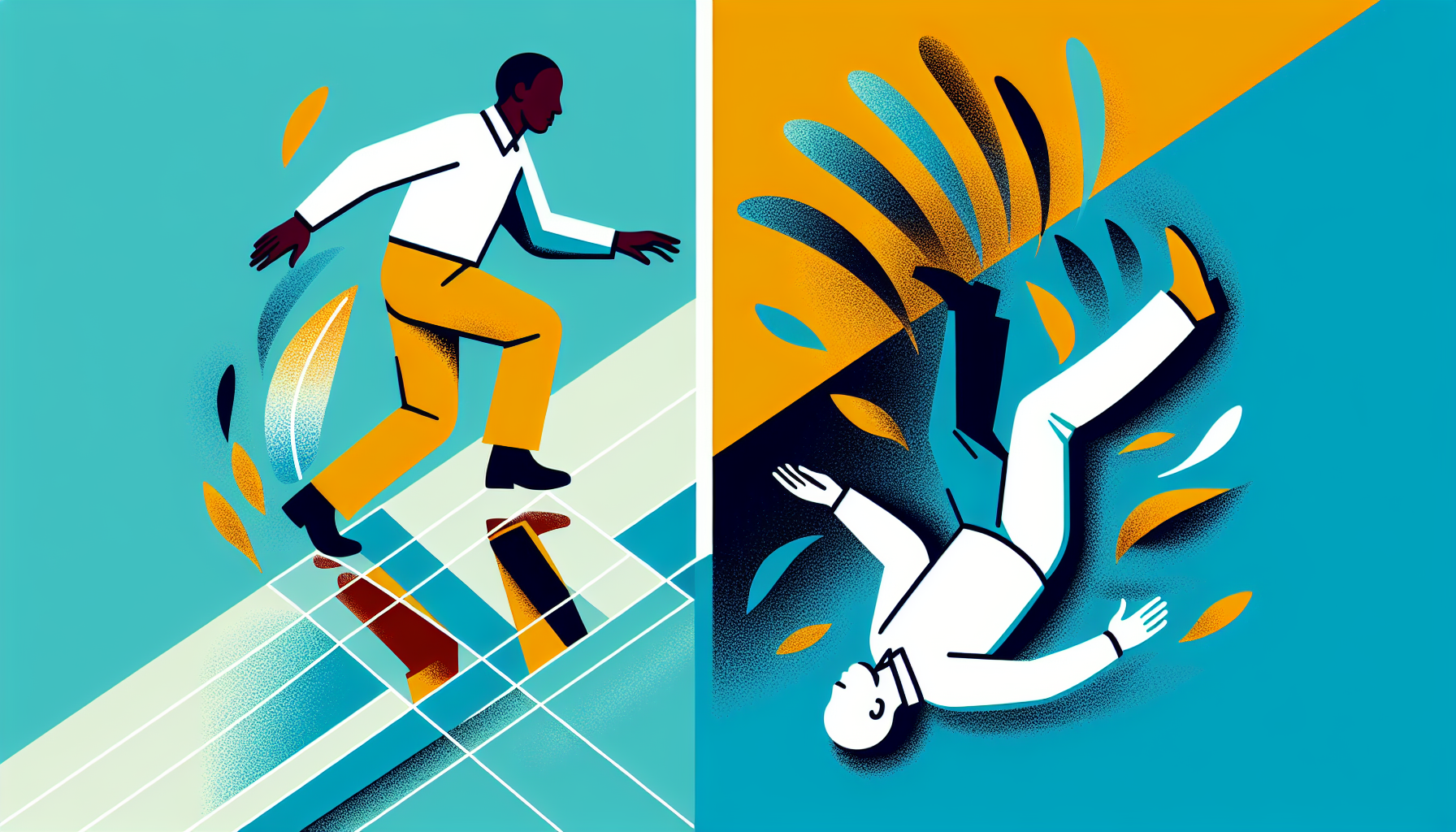
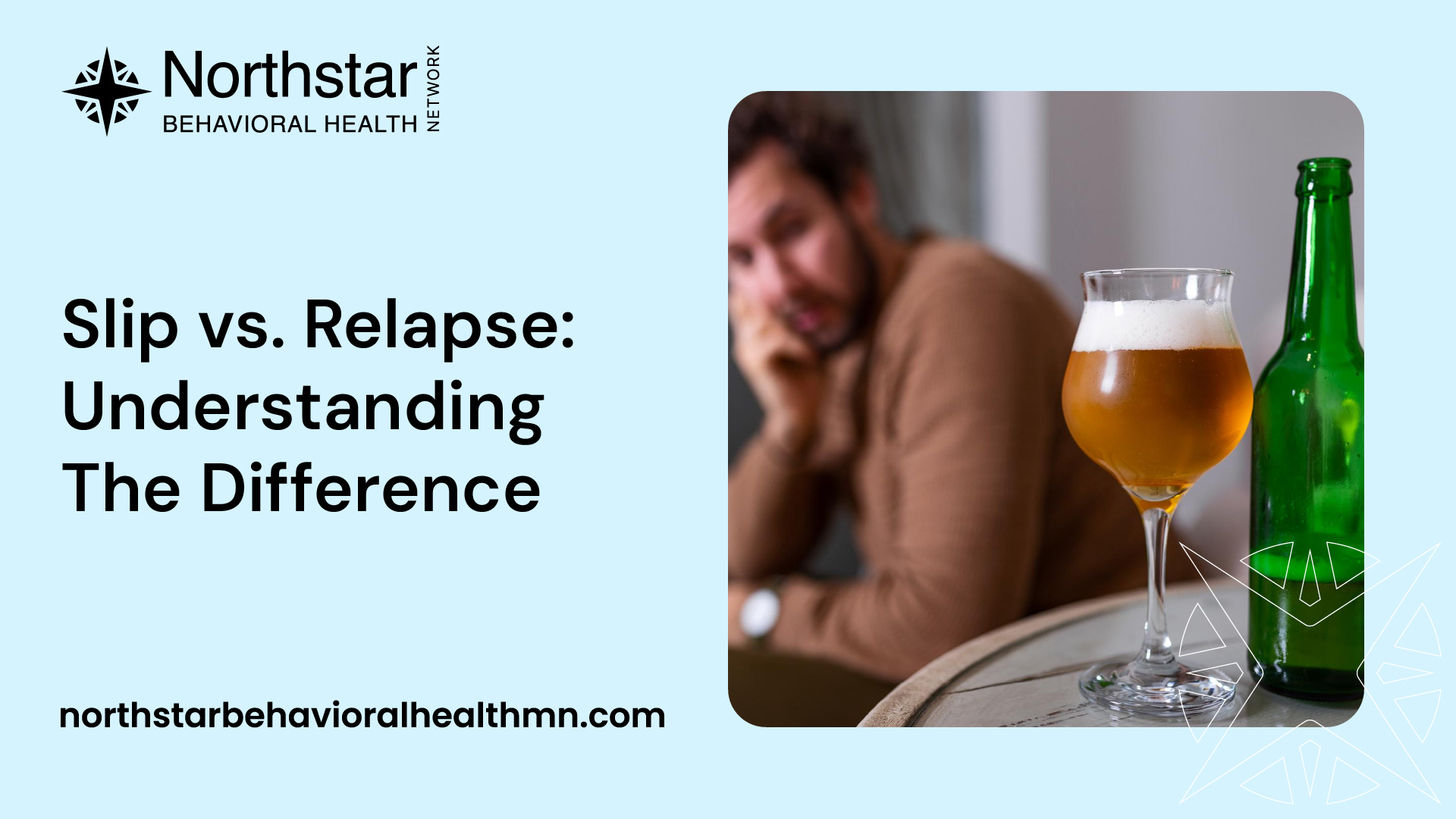
Understanding Addiction Recovery
Recovering from addiction is a journey that requires dedication, commitment, and support. It is a process that involves various stages and challenges along the way. In order to fully comprehend the difference between a slip and a relapse, it is important to first understand the overall context of addiction recovery.
The Journey to Recovery
The journey to recovery is a personal and unique experience for each individual. It starts with the decision to make a change and seek help. This can involve reaching out to support systems, such as friends, family, or professionals, who can provide guidance and assistance. Taking the first step towards recovery can be both empowering and daunting, as it requires facing personal struggles and making significant lifestyle changes.
Throughout the recovery process, individuals often go through stages that include detoxification, rehabilitation, and maintenance. Detoxification helps rid the body of substances and manage withdrawal symptoms. Rehabilitation, whether in an inpatient or outpatient setting, focuses on addressing the underlying causes of addiction and developing coping mechanisms for a substance-free life. Maintenance involves ongoing support and strategies to prevent relapse and maintain sobriety.
Challenges Along the Way
While the journey to recovery can be incredibly rewarding, it is not without its challenges. Some common challenges that individuals may encounter include:
- Withdrawal symptoms: When discontinuing substance use, individuals may experience physical and psychological withdrawal symptoms. These symptoms can be uncomfortable and may contribute to cravings and relapse.
- Triggers: Triggers are situations, people, or emotions that can evoke cravings and tempt individuals to return to substance use. Triggers can vary from person to person and can include stress, certain environments, social situations, or even specific smells or sights.
- Social pressure: Social pressure to engage in substance use can be a significant challenge during recovery. It is important to develop strategies to navigate social situations and resist peer pressure.
- Psychological factors: Addiction often involves underlying psychological factors such as depression, anxiety, trauma, or low self-esteem. Addressing these factors is crucial for long-term recovery and to prevent relapse.
- Lifestyle changes: Recovery often requires significant lifestyle changes, such as finding new hobbies, building new relationships, and establishing healthy routines. These changes can be difficult to navigate and may require support and guidance.
Understanding the journey and challenges of addiction recovery provides a foundation for comprehending the difference between a slip and a relapse. In the following sections, we will delve deeper into these concepts and explore ways to cope with slips and recover from relapses. Remember, seeking support from trusted resources and professionals is vital in maintaining a successful recovery.
For more information on the importance of support systems, check out our article on the importance of support systems.
Defining a Slip
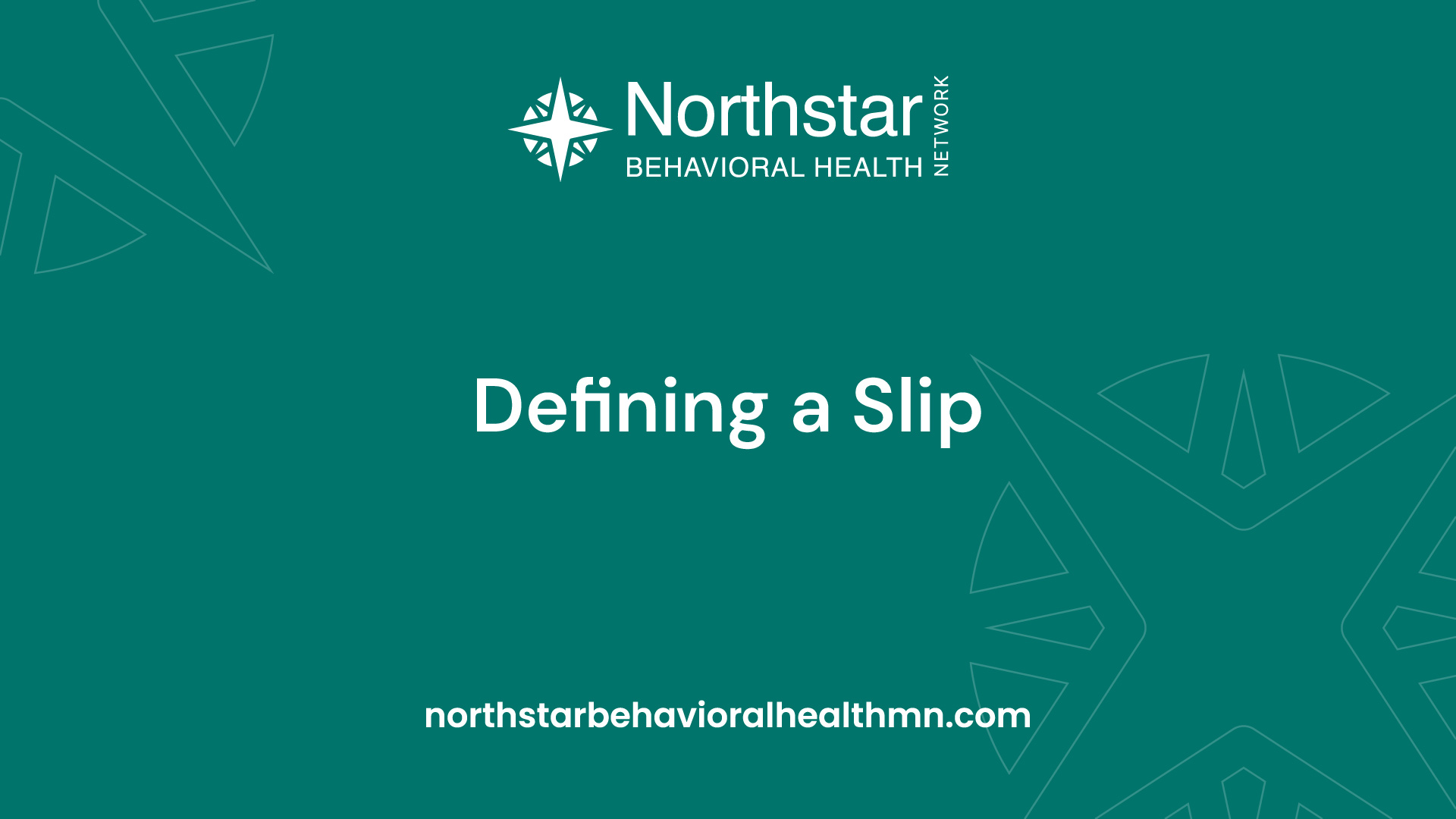
When it comes to addiction recovery, it's important to understand the distinction between a slip and a relapse. Let's explore what constitutes a slip and common triggers that can lead to one.
What Constitutes a Slip?
In the context of addiction recovery, a slip refers to a brief and isolated episode of returning to substance use after a period of abstinence. It is often considered a minor setback in the recovery journey. During a slip, an individual may engage in substance use but quickly regain control and resume their commitment to sobriety.
The key characteristic of a slip is that it is a one-time occurrence and does not signify a complete return to addictive behavior. It is crucial to view a slip as an opportunity for learning and growth rather than a failure. It's important for individuals to recognize that slips can happen, and they should not be discouraged or give up on their recovery efforts.
Common Triggers for a Slip
Several factors can contribute to a slip during the recovery process. Understanding these triggers can help individuals be better prepared to navigate challenges and prevent future slips. Here are some common triggers:
- Stressful Situations: High levels of stress can increase the temptation to turn to substances as a coping mechanism. It's important to develop healthy stress management strategies to avoid the urge to slip.
- Social Settings: Being in environments where substance use is prevalent, such as parties or social gatherings, can create triggers for a slip. Peer pressure and the desire to fit in can be challenging to resist. Building a strong support system and being mindful of the company one keeps can help reduce the likelihood of slipping.
- Negative Emotions: Feelings of sadness, anger, loneliness, or boredom can be powerful triggers for a slip. It's crucial to develop alternative coping mechanisms to manage these emotions in a healthy way, such as seeking support from friends, family, or a therapist.
- Lack of Support: Lack of a strong support system or feeling isolated can increase the vulnerability to slipping. Building a network of supportive individuals, attending support group meetings, and seeking professional help can provide the necessary support during challenging times.
By being aware of these common triggers, individuals can develop effective coping strategies and implement preventive measures to reduce the risk of slipping. Seeking professional guidance and utilizing resources for continued recovery, such as motivational interviewing and support groups, can also play a vital role in maintaining sobriety. Remember, a slip does not define the recovery journey. It is an opportunity to learn, grow, and strengthen one's commitment to long-term recovery.
Exploring a Relapse
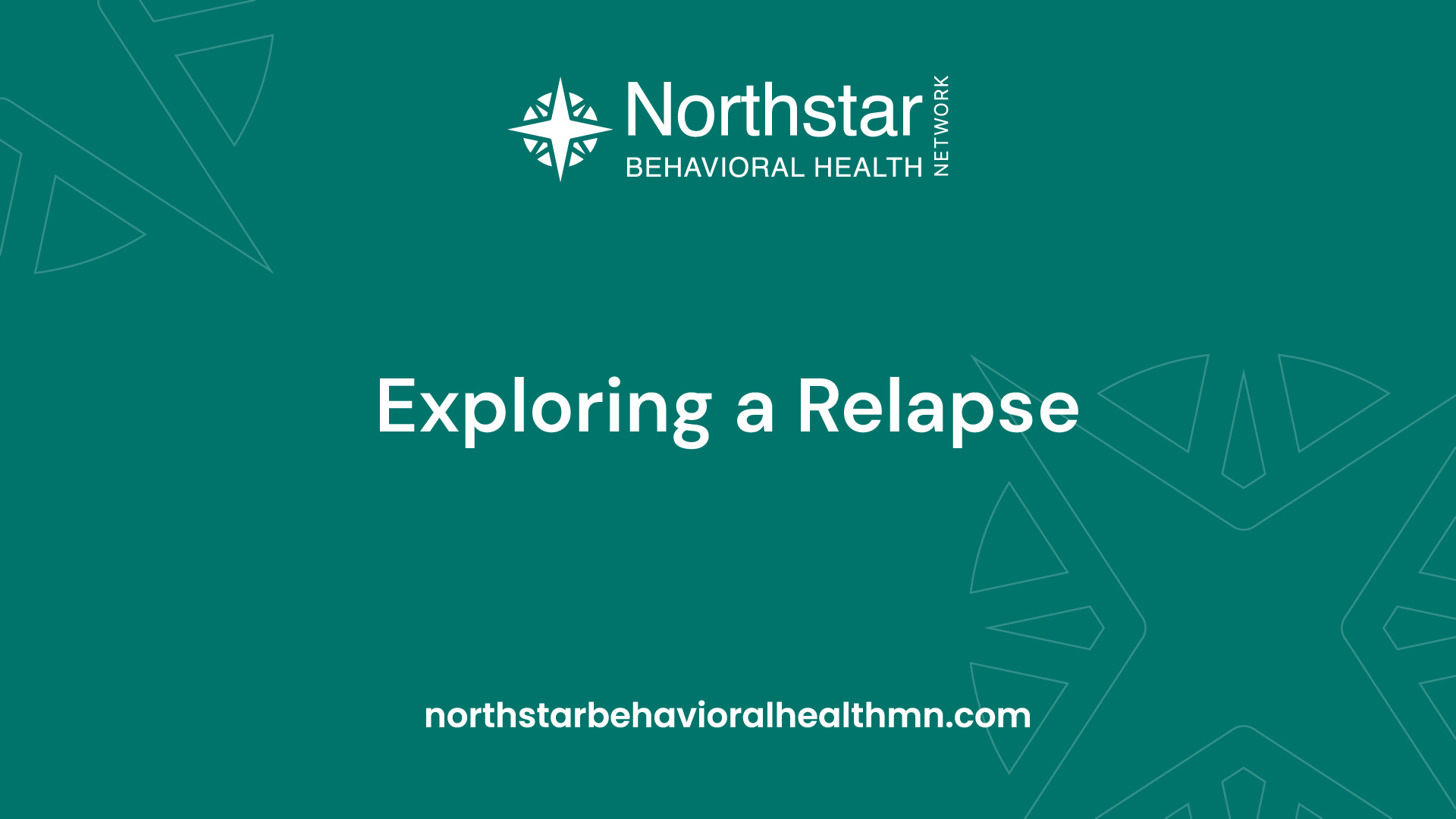
When it comes to addiction recovery, a relapse can be a challenging setback. Understanding what constitutes a relapse and the factors that can lead to one is crucial in navigating the recovery journey effectively.
Recognizing a Relapse
A relapse occurs when an individual who has been in recovery from addiction returns to using substances or engaging in addictive behaviors. Recognizing the signs of a relapse is essential for taking prompt action and seeking appropriate support. Some common indicators of a relapse may include:
- Resumption of substance use: One of the most apparent signs of a relapse is when an individual starts using the addictive substance again after a period of abstinence.
- Withdrawal from support systems: People in recovery often rely on support systems such as therapy, support groups, or close relationships. If someone begins to withdraw from these support systems, it may indicate a potential relapse.
- Reverting to old behaviors: Returning to old patterns of behavior associated with addiction, such as lying, isolating oneself, or engaging in risky activities, can be a warning sign of a relapse.
- Neglecting self-care: When an individual stops prioritizing self-care practices that have been instrumental in their recovery, such as exercise, healthy eating, or maintaining a regular sleep schedule, it may indicate a relapse.
Factors Leading to a Relapse
Various factors can contribute to a relapse, and it's essential to identify and address them to minimize the risk. Some common factors that can lead to a relapse include:
- Triggers: Triggers are external or internal cues that can prompt cravings or thoughts of substance use. Examples of triggers may include stress, certain environments, social situations, or even certain emotions. It's crucial for individuals in recovery to be aware of their triggers and develop healthy coping strategies to manage them effectively.
- Lack of support: Having a strong support system is vital in maintaining recovery. When individuals feel isolated, unsupported, or disconnected from their support network, it can increase the likelihood of a relapse. Seeking out support groups, therapy, or reaching out to trusted friends and family can help mitigate this risk.
- Untreated underlying issues: Addiction is often linked to underlying mental health conditions, trauma, or unresolved emotional issues. If these underlying issues are not adequately addressed and managed, they can contribute to a relapse. It's crucial for individuals in recovery to engage in therapy or counseling to address these underlying factors and develop healthy coping mechanisms.
- Overconfidence: Sometimes, individuals may become overconfident in their recovery and believe that they have complete control over their addiction. This overconfidence can lead to complacency, neglecting self-care practices, or failing to implement relapse prevention strategies. It's essential to remain vigilant and proactive in maintaining recovery, even during times of stability.
Recognizing the signs of a relapse and understanding the factors that can contribute to it is crucial for individuals in recovery. By staying aware, seeking support, and implementing effective coping strategies, individuals can work towards preventing a relapse and continue their journey towards long-lasting recovery. For more information on the importance of support systems in addiction recovery, check out our article on importance of support systems.
Differentiating Between a Slip and a Relapse
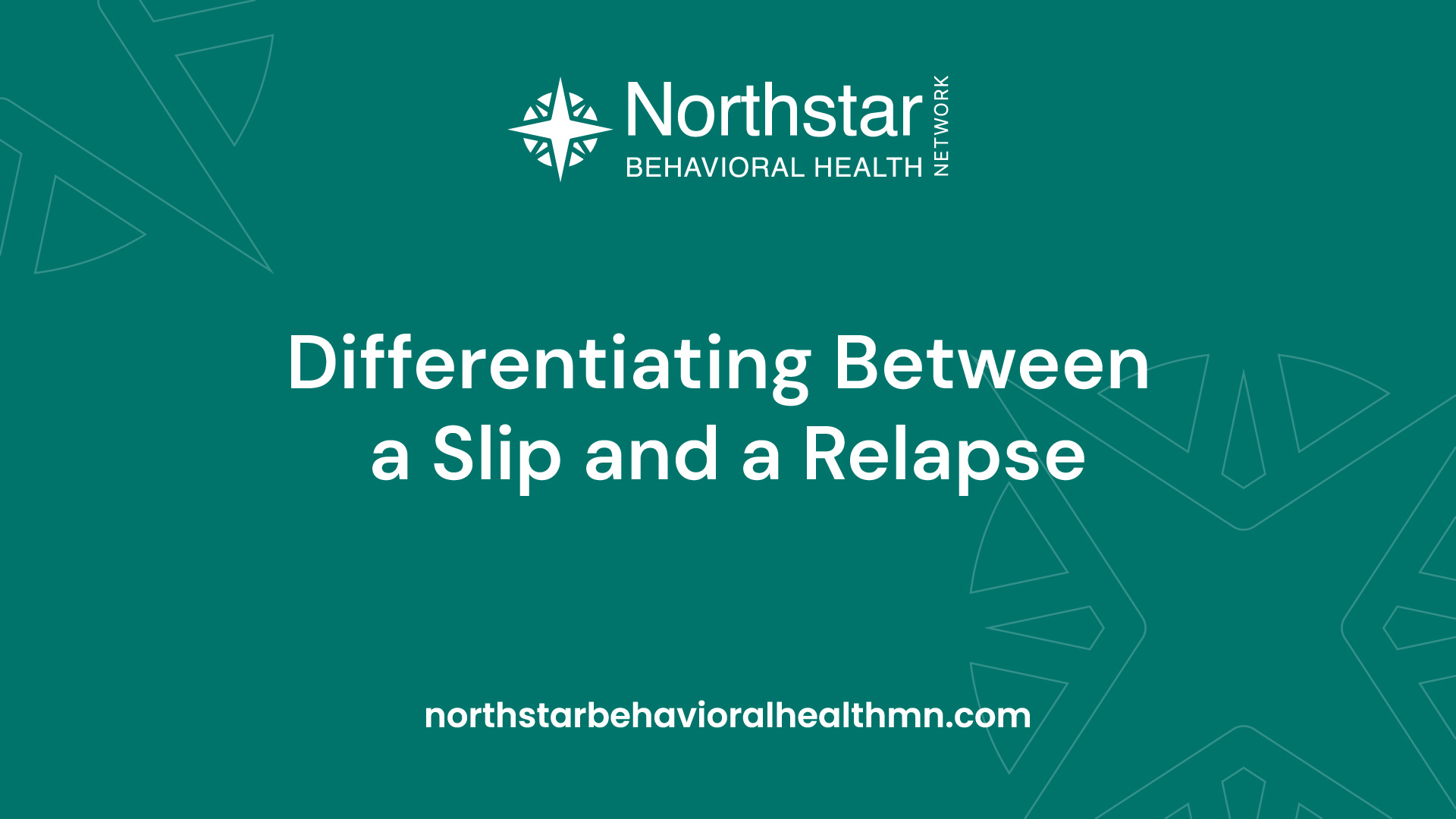
When it comes to addiction recovery, it's important to understand the distinction between a slip and a relapse. Although these terms are sometimes used interchangeably, they have different meanings and implications. Let's explore the key differences between a slip and a relapse and how they can impact the recovery journey.
Key Differences
A slip refers to a brief and isolated incident in which a person in recovery engages in substance use or addictive behavior. It is often characterized by a temporary lapse in judgment or a moment of weakness. The individual may have a momentary relapse but quickly reverts to their commitment to recovery. It is important to note that a slip is not a complete return to addictive behavior but rather a temporary deviation.
On the other hand, a relapse is a more significant and sustained return to addictive behavior after a period of abstinence. It involves resuming substance use or engaging in addictive behaviors on a recurring basis. Unlike a slip, a relapse indicates a more significant setback in the recovery process and may require additional intervention or support to regain control.
Impact on Recovery Journey
The impact of a slip and a relapse on the recovery journey can vary. A slip, although a setback, can serve as a valuable learning experience. It allows individuals to identify triggers and areas of vulnerability, reinforcing their commitment to recovery. By recognizing and addressing the factors that led to the slip, individuals can strengthen their coping strategies and enhance their resilience in the face of future challenges.
It's essential for individuals who experience a slip to seek support, re-evaluate their recovery plan, and reinforce their commitment to sobriety.
In contrast, a relapse can have more profound consequences on the recovery journey. It may lead to feelings of guilt, shame, and disappointment, as individuals may perceive the relapse as a failure. However, it's important to remember that relapse is a common occurrence in the recovery process and should be viewed as an opportunity for growth rather than a definitive setback.
Seeking immediate support, such as reaching out to a therapist or attending support group meetings, is crucial to prevent the relapse from spiraling further and to reestablish a solid foundation for recovery.
Understanding the difference between a slip and a relapse empowers individuals in recovery to navigate these challenges more effectively. By recognizing the signs and taking proactive steps to address any deviations from their recovery plan, individuals can maintain their commitment to sobriety and continue on their path towards long-term recovery. Remember, recovery is a journey, and setbacks are a natural part of that journey. What truly matters is the willingness to learn, grow, and persevere.
Coping Strategies
When it comes to addiction recovery, slips and relapses can happen. It's important to have coping strategies in place to effectively deal with these situations and continue on the path to recovery. Here are some strategies for dealing with a slip and recovering from a relapse.
Dealing with a Slip
A slip refers to a brief and unintentional return to addictive behavior. It can be disheartening, but it's essential to remember that a slip does not mean failure or a complete relapse. Here are some coping strategies to help navigate a slip:
- Self-Reflection: Take time to reflect on the slip and identify the triggers or situations that led to it. This self-awareness can help prevent future slips.
- Seek Support: Reach out to your support network, whether it's a therapist, sponsor, or a trusted friend or family member. Talking about the slip can provide valuable guidance and encouragement.
- Recommit to Recovery: Use the slip as an opportunity to recommit to your recovery goals. Remind yourself of the progress you have made and the reasons why you wanted to overcome addiction in the first place.
- Learn from the Experience: Treat the slip as a learning experience. Identify what went wrong and develop strategies to avoid similar situations or triggers in the future.
- Adjust Your Plan: If necessary, make adjustments to your recovery plan. Consider exploring different treatment approaches, such as motivational interviewing, or seeking additional support if you feel it would be beneficial.
Remember, a slip does not define your recovery journey. It's an opportunity to learn and grow stronger in your commitment to sobriety.
Recovering from a Relapse
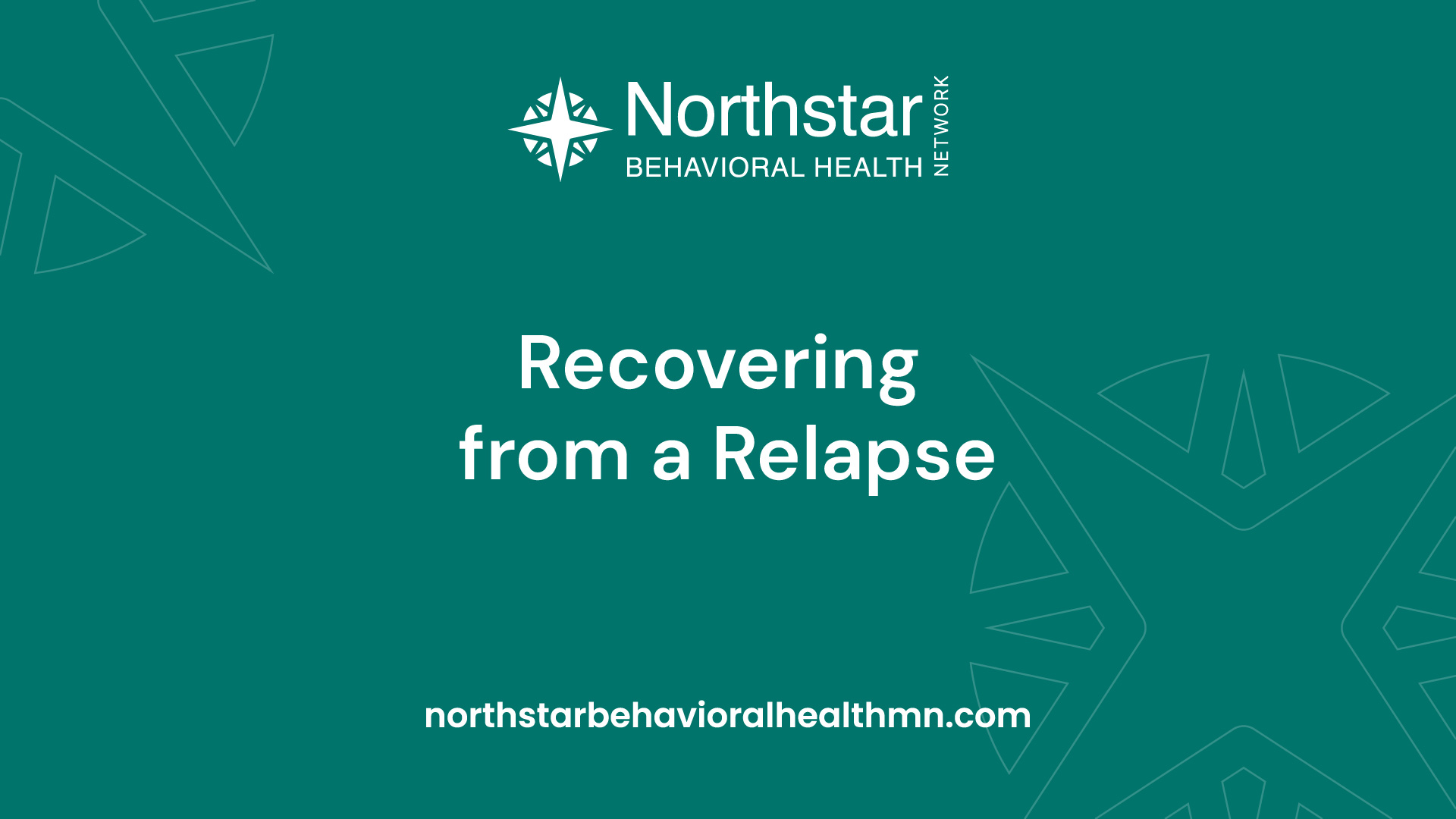
A relapse refers to a return to addictive behavior after a significant period of abstinence. It can be a challenging and discouraging experience, but it's important to remember that recovery is still possible. Here are some coping strategies to help recover from a relapse:
- Seek Professional Help: Reach out to a healthcare professional or addiction specialist who can provide guidance and support throughout the recovery process. They can help you develop a personalized plan to address the relapse and prevent future occurrences.
- Reestablish Support Systems: Reconnect with your support system, such as attending support group meetings or therapy sessions. Surrounding yourself with individuals who understand and support your recovery journey can be instrumental in staying motivated.
- Identify Triggers and High-Risk Situations: Take time to identify the triggers and situations that led to the relapse. By recognizing these patterns, you can develop strategies to avoid or effectively cope with them in the future.
- Practice Self-Care: Focus on self-care activities that promote physical, emotional, and mental well-being. This may include exercise, meditation, engaging in hobbies, or spending time with loved ones.
- Set Realistic Goals: Set small, achievable goals to regain a sense of control and progress. Celebrate each milestone, no matter how small, as it reinforces your commitment to recovery.
Recovering from a relapse requires resilience and determination. It's important to be patient with yourself and remember that setbacks are a normal part of the recovery journey. By seeking support, making necessary adjustments to your plan, and focusing on self-care, you can regain your momentum and continue working towards a healthier, addiction-free life.
Seeking Support
When it comes to addiction recovery, seeking support is crucial for long-term success. Building a strong support system and utilizing available resources can greatly aid individuals in their journey toward continued recovery.
Importance of Support Systems
Having a reliable support system is essential for individuals who are working to overcome addiction. Support systems can consist of family, friends, addiction support groups, therapists, and other professionals who specialize in addiction recovery. These individuals can provide emotional support, guidance, and accountability throughout the recovery process.
Support systems can offer a safe space for individuals to share their experiences, fears, and challenges. They can provide encouragement and motivation during difficult times, as well as celebrate milestones and achievements along the way. Being surrounded by understanding and non-judgmental individuals can significantly impact an individual's ability to stay on track with their recovery goals.
Additionally, support systems can help individuals develop healthy coping mechanisms and provide alternative activities to replace old habits. They can also offer practical assistance, such as helping to find treatment options, attending therapy sessions, or participating in sober activities together. The power of a strong support system should not be underestimated in the journey toward sustained recovery.
Resources for Continued Recovery
In addition to support systems, there are various resources available to individuals seeking continued recovery. These resources can provide additional tools, information, and assistance to help individuals maintain sobriety and navigate the challenges that may arise.
Some resources that can be beneficial for individuals in recovery include:
- 12-Step Programs: Programs such as Alcoholics Anonymous (AA) and Narcotics Anonymous (NA) offer a structured approach to recovery, providing support, guidance, and a sense of community.
- Counseling and Therapy: Individual and group therapy sessions can provide a safe environment to address underlying issues, develop coping skills, and receive professional guidance throughout the recovery journey.
- Rehabilitation Centers: Inpatient and outpatient rehabilitation centers offer comprehensive treatment programs that include detoxification, therapy, counseling, and aftercare support.
- Sober Living Homes: Sober living homes provide a structured and supportive environment for individuals transitioning from rehabilitation programs back into society. These homes offer a drug- and alcohol-free living space along with support and accountability.
- Online Support Groups: Online support groups, forums, and chat rooms provide a convenient and accessible platform for individuals to connect with others who are facing similar challenges in their recovery journey.
- Educational Resources: Books, articles, podcasts, and websites dedicated to addiction recovery can provide valuable information, guidance, and inspiration for individuals seeking continued sobriety.
It's important for individuals to explore the available resources and find those that align with their specific needs and preferences. Every person's recovery journey is unique, and finding the right support and resources can greatly enhance the chances of maintaining long-term sobriety. For more information on addiction recovery and other related topics, check out our articles on motivational interviewing, prevention, and parental influence.

.jpg)




.jpg)

